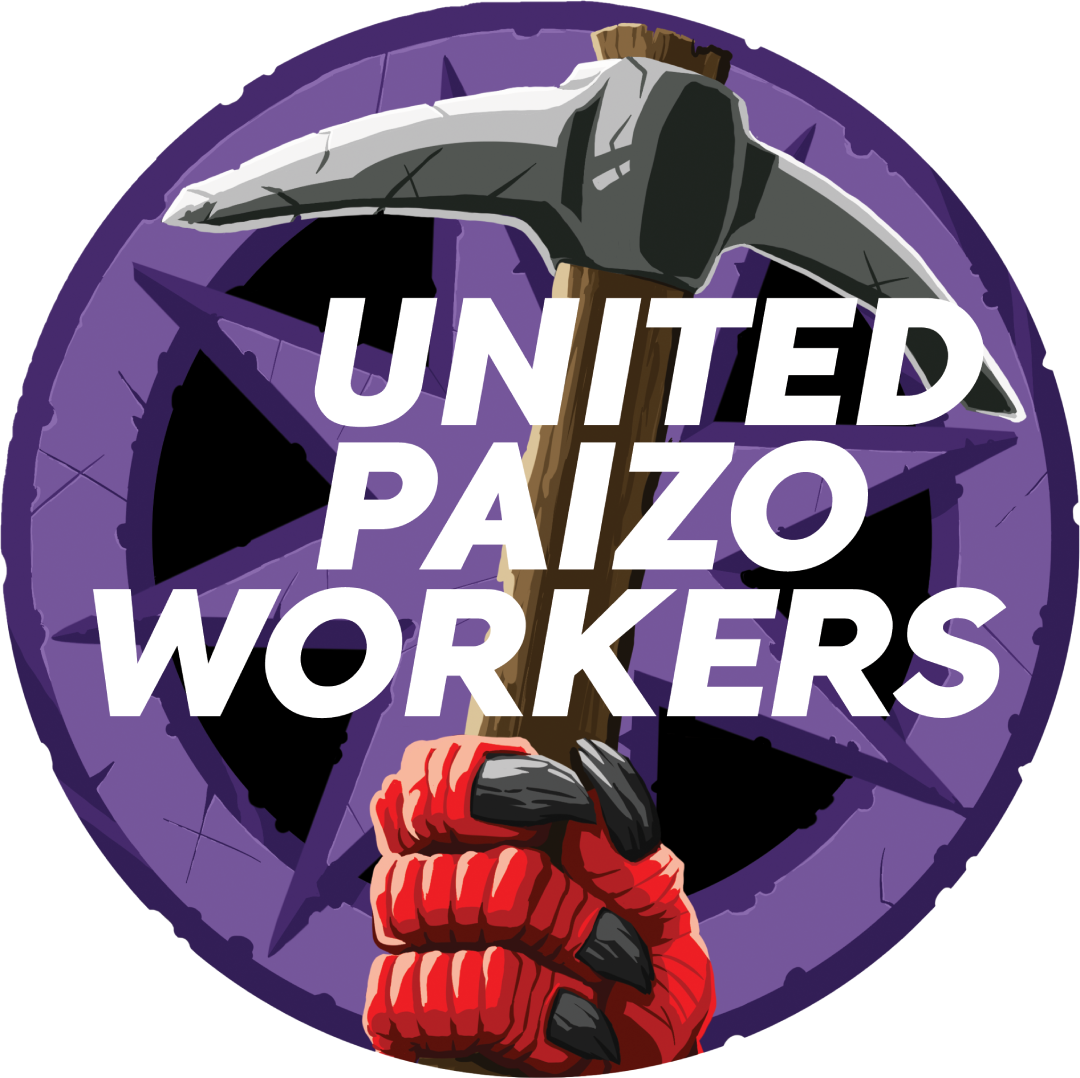When Paizo management agreed to voluntarily recognize the United Paizo Workers as the collective bargaining agent for fifty Paizo employees, those employees entered a temporary protected status known in labor law as status quo. Status quo is intended to protect both the workers and their company while the collective bargaining agreement is being negotiated, by requiring that policies surrounding mandatory bargaining subjects remain consistent until the new contract is signed. If we were “between contracts”, the terms of the old contract would simply carry forward until the new contract is signed. In this case, the “old contract” is Paizo’s previously existing policies.
Mandatory bargaining subjects include the following:
- Wages, raises, bonuses, and related policies
- Hours of work, time off, and related policies
- Health and safety policies
- Insurance, retirement, and other compensation
- Grievance procedures
- Seniority policies
- Hiring, firing, layoff, recall, and disciplinary procedures
- Union security, job security
It’s important to clarify that though management can no longer unilaterally change the policies and procedures related to these subjects, that doesn’t mean that everyone’s wages are frozen until the collective bargaining agreement is signed. Rather, the policies addressing these subjects are being carried forward under status quo. Paizo will (and must!) have its normal year-end performance review, with the traditionally accompanying raises and bonuses. Similarly, we’ve just completed the open enrollment period for next year’s health insurance, which looks very similar to this year’s health insurance.
Ultimately, status quo is intended to keep a company functioning more-or-less normally during the negotiation process. Properly implemented, it’s designed to act as an autopilot rather than handcuffs. If there is a need for changes that cannot wait for the new contract, there are a number of escape hatches to allow otherwise forbidden changes on a shorter timeline. If management wants to make changes to address concerns (such as increasing wages across the board or altering work-from-home policies), they can present them to the union for membership to vote on approval. The NLRA also contains an exception for if “economic exigencies compel prompt action”. Management would need to justify the use of such an exception to the NLRB, however, and would be obligated to incorporate union input whenever practical.
